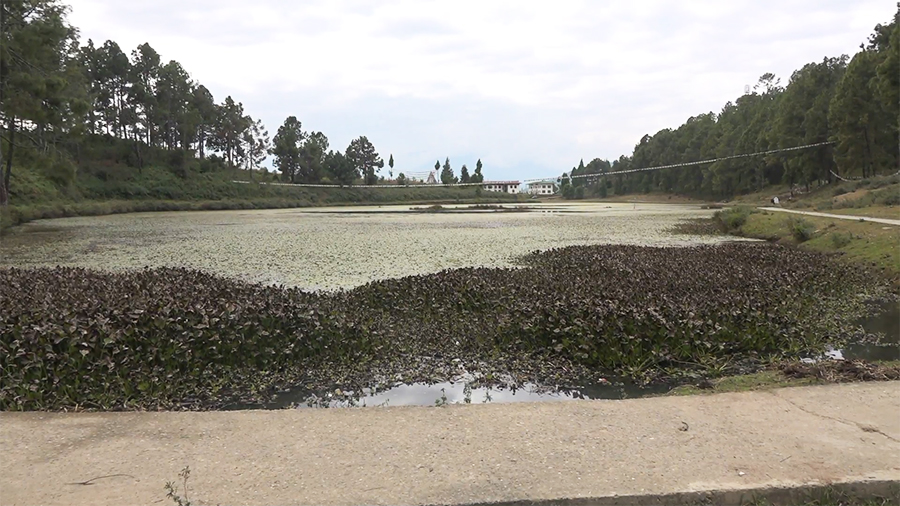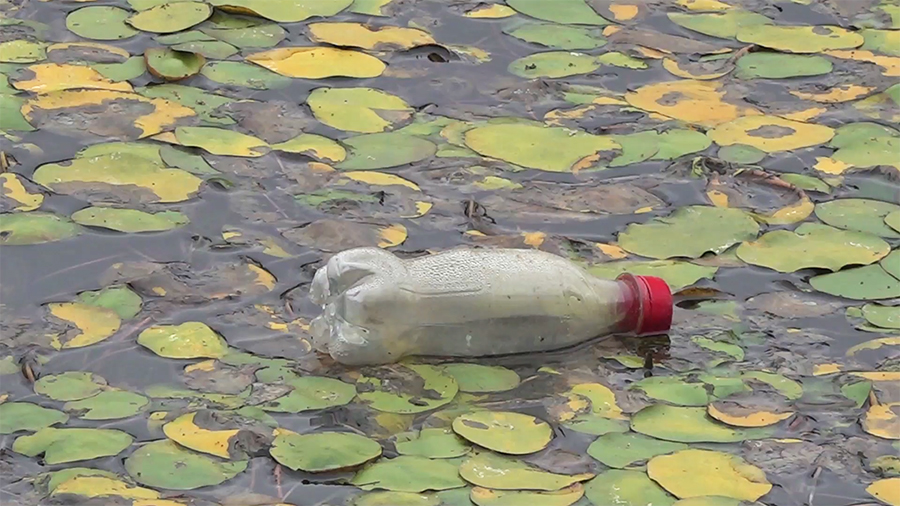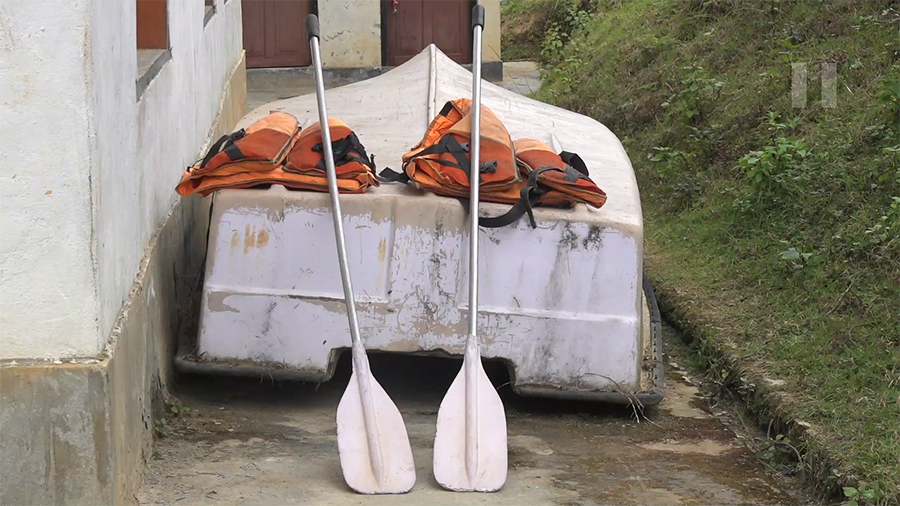
What used to be a clean and serene water body, the Luetshokha Tsho popularly known as Samtengang Lake in Wangdue Phodrang is now infested with invasive weeds. The weeds, predominantly the water shield, need to be removed from time to time to maintain the lake ecosystem. However, due to lack of budget, the Nyisho Gewog Administration is not able to clear the weeds and carry out site development works.
 The entire lake is covered by weeds. Without fences, cattle and horses can be seen wandering around the lake and even drinking the lake water.
The entire lake is covered by weeds. Without fences, cattle and horses can be seen wandering around the lake and even drinking the lake water.
The lake is littered with plastics and bottles while some people visit the lake site and have picnics.
The weeds were once removed and cleaned by the Bhutan Trust Fund for Environmental Conservation in 2016. However, weeds have become too thick now that they need to be cleaned up again.
A research found that the lake feeds smaller water bodies downstream, which are used as irrigation and drinking water for some communities nearby. This has left the people worried in case the overpopulated weeds cause the lake to shrink.
“If the source of the irrigation water is from this lake, then when it shrinks, it will affect the nearby paddy growers. We also have more than a hundred households who depend on the lake for drinking water. That’s why the gewog office is very concerned of lake’s condition,” said Nyisho Gup.
The Gewog Administration also built concrete footpaths around the lake in 2018 to attract visitors and ensure their safety. Today, the lake is being fed excess irrigation water from villages upstream to maintain its water level. Besides adding aesthetics to the place, the lake is also being revered by the nearby community.
“According to our traditional beliefs, if there is a lake sitting atop the villages, we believe that the lake would bless the people living with wealth, peace and prosperity. This is what the oral tradition says about lakes,” added Dorji Dorji.
 The Gewog Office has a small boat and other equipment that were used in the clean up in 2016. However, without any experienced people to use them, they are left idle. The gup says around Nu 3 M will have to be spent to clean the lake.
The Gewog Office has a small boat and other equipment that were used in the clean up in 2016. However, without any experienced people to use them, they are left idle. The gup says around Nu 3 M will have to be spent to clean the lake.
“When the new government is formed, we will discuss it with them and the community about the budget requirement. We will request for funds from organisations, agencies and ministries,” said the Nyisho Gup.
Lakes help in replenishing groundwater, improve water quality and preserve the biodiversity and habitat of the area. They also help in regulating water flow and climate of the surrounding area. Studies say if kept unmonitored, floating mats of weeds that shade out native vegetation will lead to decrease in plant biodiversity and impact native species.
Changa Dorji, Wangdue Phodrang
Edited by Kipchu










